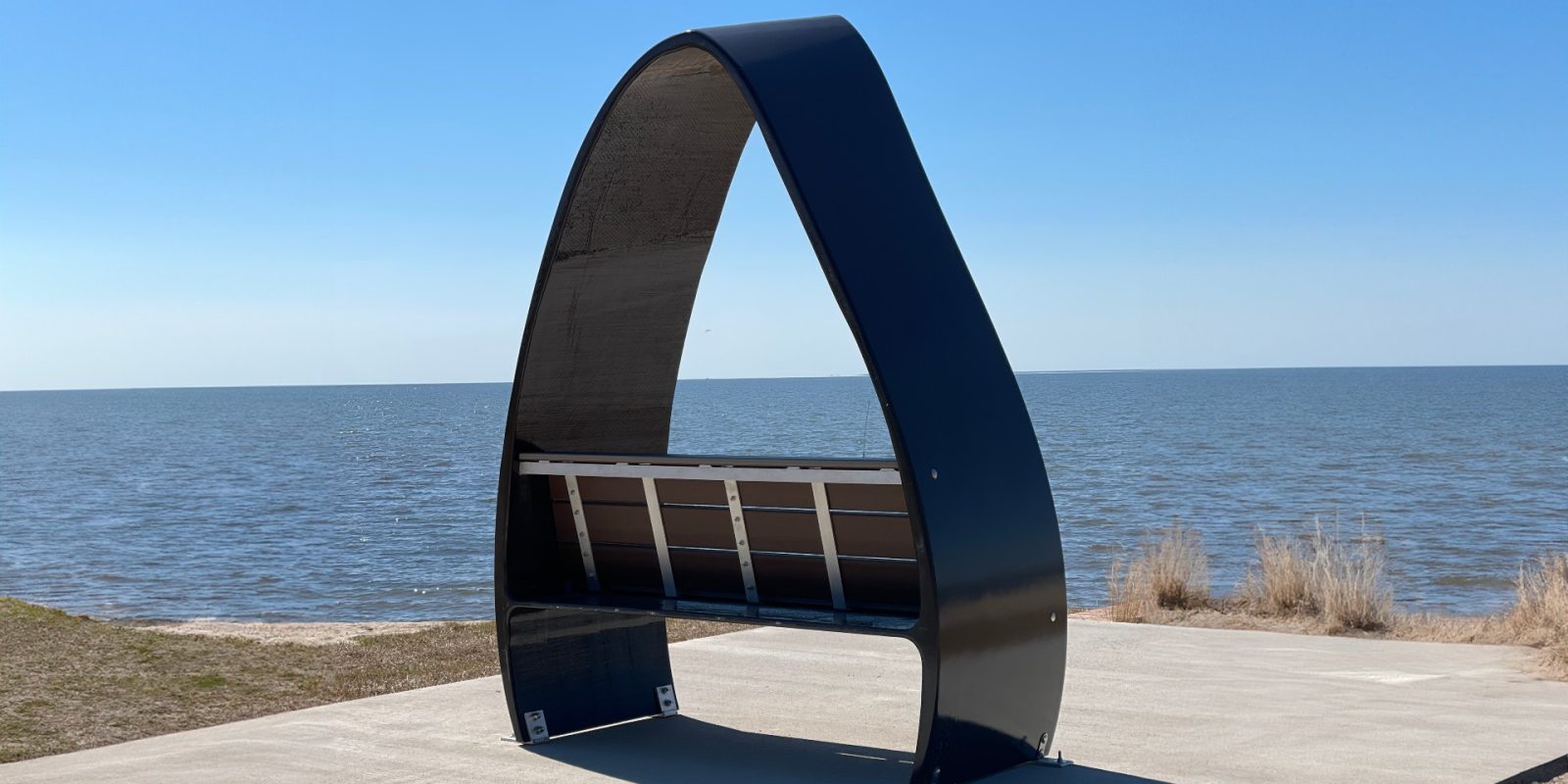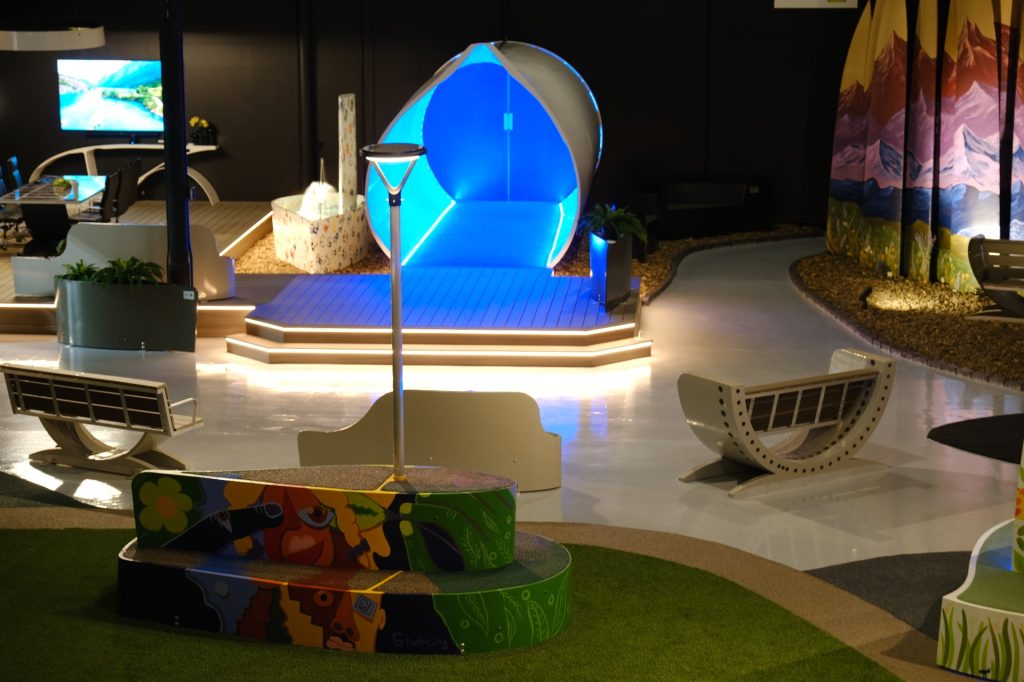
Canvus turns retired wind turbine blades into beautiful park benches, planters, and picnic tables for public spaces across the US.
The US Department of Energy estimates that the average rate of wind turbine retirements will include up to 9,000 blades per year by 2026, and that number will only grow. So Rocky River, Ohio-based startup Canvus is keeping end-of-life wind turbine blades out of landfills by turning them into functional public art.
Big wind turbine manufacturers such as Vestas, GE, and Avangrid have sent thousands of blades to Canvus’s factory since its founding in April 2022. Canvus, in turn, collaborates with nonprofits and civic organizations to provide towns and cities across the US with park benches, tables, and planters made of those wind turbine blades. The company also works with a network of artists that are commissioned to paint on its products in its “primed and ready” program.

The blades are brought into the factory in 40-foot sections, cut using a rope saw, and finished with epoxy paint. In addition to the edges, Canvus uses recycled materials from other industries, such as old tires, shoes, and plastic waste.
Canvus’s vice president of corporate affairs, Brian Donahue, told me that the company has sold “hundreds if not thousands” of its products to US communities. He said the company’s goal is to handle 10-15,000 blades a year but acknowledged that it will need to expand its product line to do so.
How they’re sold
The turbine blade recycler not only makes creative products; it also uses a creative business model. Communities make a wish list of the Canvus products they want, and then those products, with an average price of around $6,000, are then paid for by sponsors. (Canvus’s online sponsorship process reminds me of a wedding gift registry website.) Sponsors could be anyone from a family that wants to commemorate a loved one to a local business that wants to increase its visibility. Each bench features a QR code that provides more information about that sponsor.
For example, the city of Westerville, Ohio, has put nine Canvus benches and hybrid/bench planters on its wish list for its Ohio to Erie trail, which is a recreational long-distance outdoor trail for hikers and cyclists. Four of its benches have sponsors, and five are still up for grabs. For example, someone can still sponsor the Faye Classic Hybrid for the trail – it costs $3,781, and it features seating made from recycled tires and shoes, and recycled aluminum feet.
Canvus’s products can only purchased in this fashion, so if you wanted to splurge on one of its wind turbine blade benches for your home, you’d be out of luck. It’s Canv-US. Geddit?
Check out the video below to see how Canvus’s products are made:
Read more: A Danish wind turbine giant just discovered how to recycle all blades
Photos: Canvus
To limit power outages and make your home more resilient, consider going solar with a battery storage system. In order to find a trusted, reliable solar installer near you that offers competitive pricing, check out EnergySage, a free service that makes it easy for you to go solar. They have hundreds of pre-vetted solar installers competing for your business, ensuring you get high quality solutions and save 20-30% compared to going it alone. Plus, it’s free to use and you won’t get sales calls until you select an installer and you share your phone number with them.
Your personalized solar quotes are easy to compare online and you’ll get access to unbiased Energy Advisers to help you every step of the way. Get started here. – ad*
